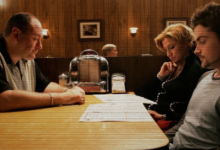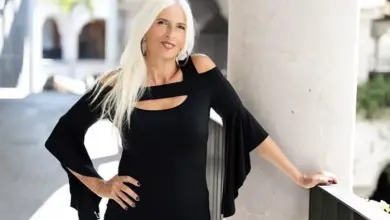Sopranos: Why Pie-O-My’s Death Is the Series’ Turning Point
The subtext in The Sopranos quite often proves to be more important than the text, with the show so drenched in symbolic potency that even years after the series’ finale, fans still hotly contest the correct interpretation of its various elements. On a surface level, the show depicts Tony Soprano’s rise and fall through the world of organized crime, but his struggles with panic attacks at the start of the series spurs on interrogations of psychology, morality and responsibility .
When the racehorse Pie-O-My dies halfway through the series, it is not a stretch to say the animal’s death has a far greater significance than it may initially seem. In fact, Pie-O-My’s death may just have been the turning point of the entire series, spelling the beginning of the end for Tony Soprano.

Pie-O-My is introduced in the Season 4 episode bearing her name, where Ralph Cifaretto purchasing the horse instigates Tony’s interest in the animal. Even in her introductory scene, much of the arc involving Pie-O-May is hinted at, with Tony showing affection for the animal even as Ralph bemoans her recent losses and instructs her caretaker to inform the jockey not to spare the whip while riding her.
Over the course of the arc, Ralph becomes increasingly disappointed in the lack of returns on his investment, while Tony grows increasingly attached to the animal. When Pie-O-My is sick, Tony shells out for the veterinarian Ralph refused to pay for, and then Tony stays in Pie-O-My’s stable all night as she recovers.
Tony becomes so connected to Pie-O-My that when her stable catches fire and she dies, Tony proves deeply affected by the death. He confronts Ralph, insinuates he started the fire to collect the insurance and then murders Ralph while yelling “She was a beautiful, innocent creature!” Yet everything that leads up to the murder implies there is a lot more going on to the scene than just vengeance for the horse, and everything that happens later shows Tony’s increasingly rapid descent into self-destruction.
Most notably, the occasion was not the first time that Ralph crossed Tony. Ralph previously beat a Bada Bing dancer, Tracee, to death despite the young woman being pregnant with Ralph’s child. At the time, Tony did not take action against Ralph, with his status as a made man hampering Tony’s freedom for retribution. Furthermore, when Tony confronts Ralph about Pie-O-My, Ralph calls Tony out on caring more for animals than humans, as well as his hypocrisy for eating meat if he considers himself an animal lover. Meat’s established by Dr. Melfi to be a trigger for Tony’s panic attacks, and these are frequently accompanied by instances of unbridled violence, like here.

Tony’s tenderness for other animals, such as the ducks in his swimming pool, later connects in his sessions with Melfi as a possible indicator of his sociopathy. More comfortable with emotional attachments to animals than humans, Ralph confronting Tony about an aspect of his psychology proved to be a triggering event. In his own way, Tony’s self-hatred and recognition of his own hypocrisy may well have been pushed over the edge by Ralph’s accusations. After doing nothing to defend Tracee, Tony’s defense of Pie-O-My forces him into a place where he only ever spirals into further self-hatred.
Pie-O-My’s death occurs at the midpoint of the series, and that proves to be no mistake. Later, a commissioned painting of Tony and Pie-O-My haunts Tony, as he is reminded of what Ralph said, even if he doesn’t want to confront this. Throughout the rest of the series, Tony descends further into a gambling addiction, flouts conventions against harming his own men and suffers from emotional isolation because he continue to address his own issues and hypocrisy.
Ultimately, Tony’s psychiatric relationship with Melfi collapses in failure after the insights into his own mind bring Tony little solace due to his own inability to address his issues and change as a person. Pie-O-My’s death, and his subsequent confrontation with Ralph, was a psychological breaking point at which Tony was forced to face the truth of his own sociopathy, but nevertheless, he turned away from it. As much as Melfi attempted to help Tony, he did not want to help himself.


